As we’ve learned throughout evaluating previous NFL drafts, it’s difficult to predict which players will pan out when they transition from college to the pros.
This is especially true for quarterbacks. Patrick Mahomes is widely considered the NFL’s top signal-caller, but he ranked as the seventh-best quarterback in PFF grade during college, with an 88.0 mark that placed him behind Mitchell Trubisky. As PFF's Steve Palazzolo and Eric Eager wrote in January 2020, “Mahomes’ likelihood to achieve what he’s achieved so far [is] at somewhere between one and two percent, depending on the metric.”
Subscribe to
This is where the completion percentage over expected (CPOE) metric can assist. Using the features shown in the graphic below, we can rate a quarterback’s accuracy based on the likelihood of them completing a pass in the given circumstances and whether they actually completed the pass:
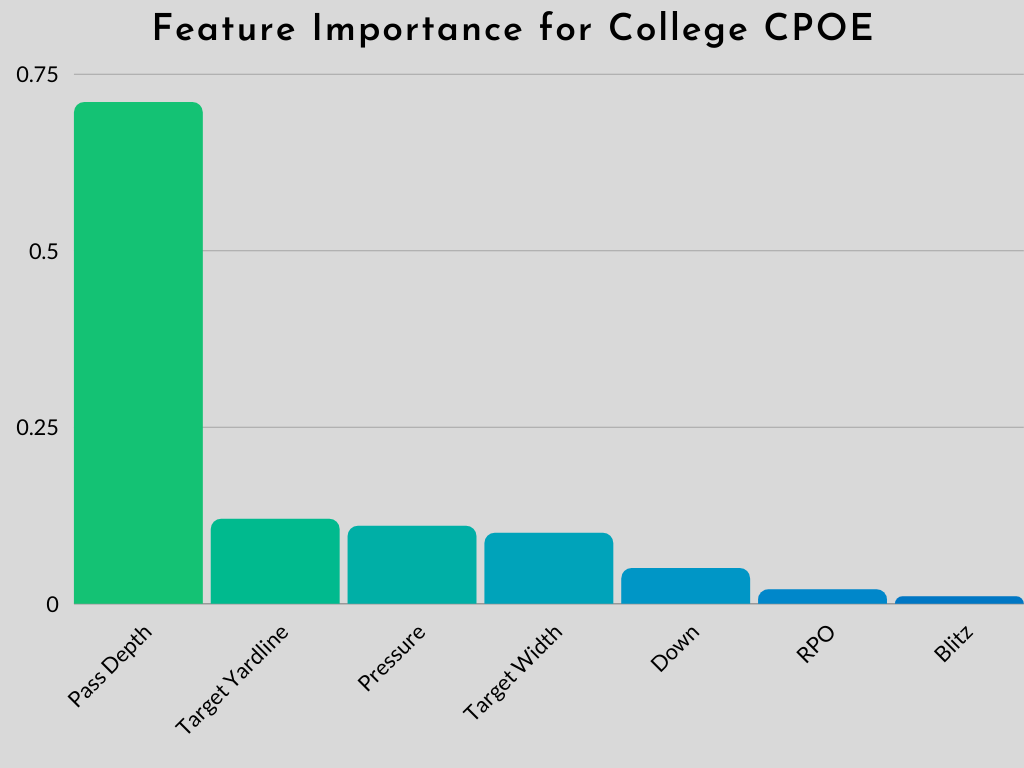
College CPOE has multiple strengths when it comes to evaluating quarterbacks. For starters, it’s much more stable than expected points added per play year to year, as a quarterback’s situational changes can affect EPA per play. They don't affect CPOE, the quarterback's ability to overcome those situations, quite as much:
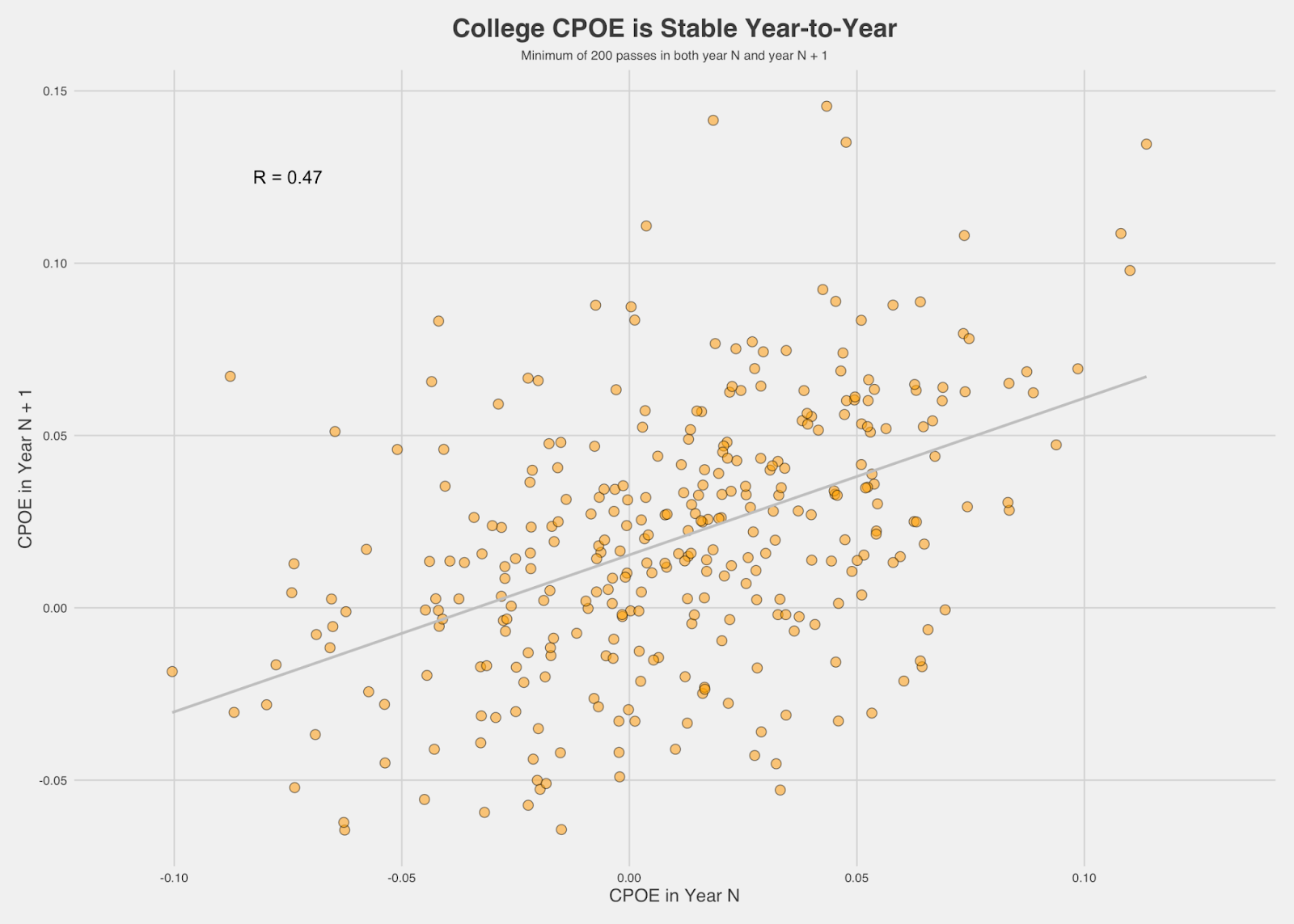
Another advantage of CPOE is that it’s slightly more predictive of NFL performance than other, more straightforward metrics:
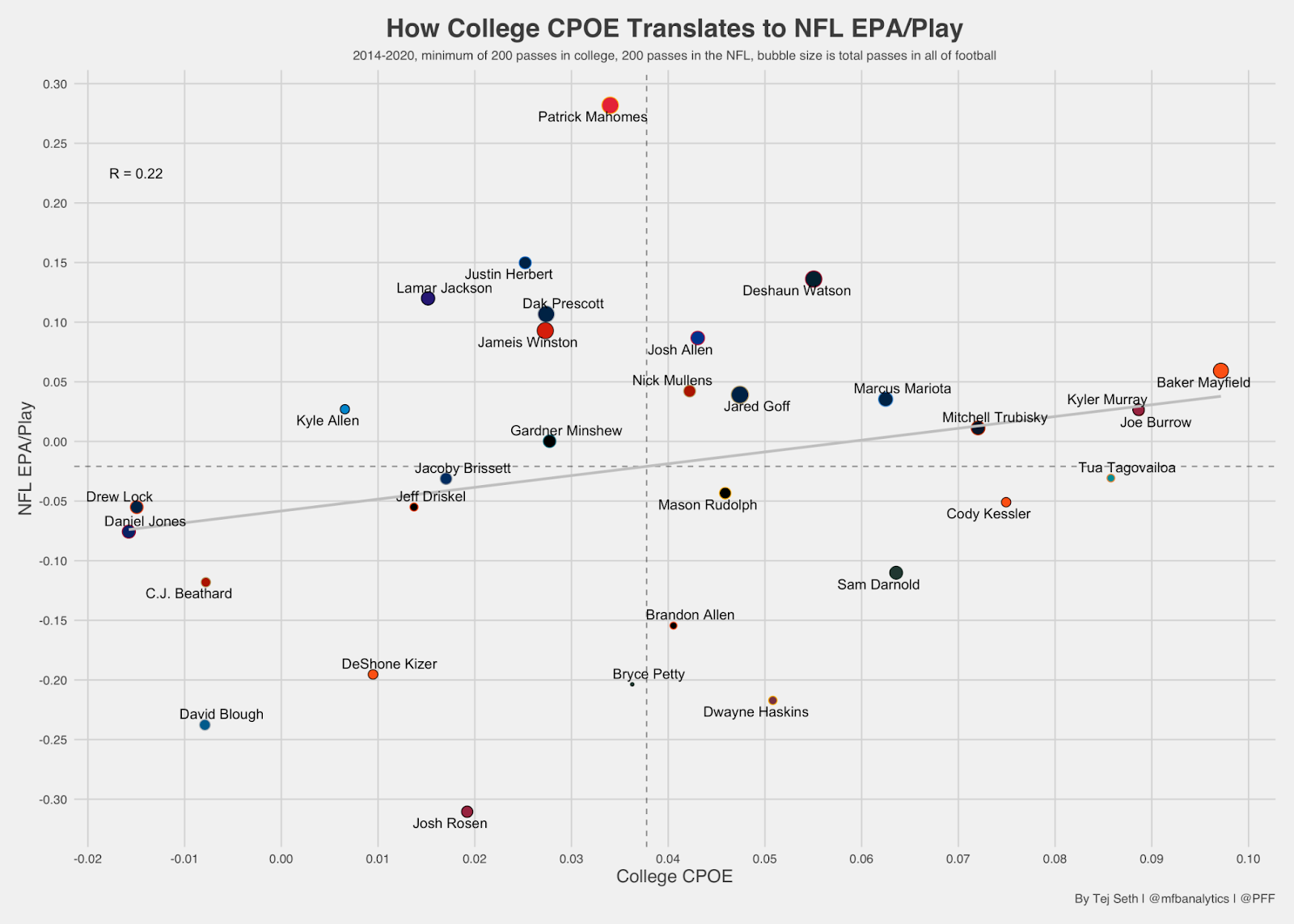
The next logical step is to use CPOE to evaluate quarterbacks who have yet to play in the NFL. And after doing so, it’s pretty clear that Bears fans should be thrilled about the team landing Justin Fields with the No. 11 overall pick in the 2021 NFL Draft. Not only was he more accurate in college than his Ohio State predecessor, the often-compared Dwayne Haskins, and his Bears predecessor, Mitchell Trubisky, he was actually the most accurate quarterback in the PFF College era (2014-present):
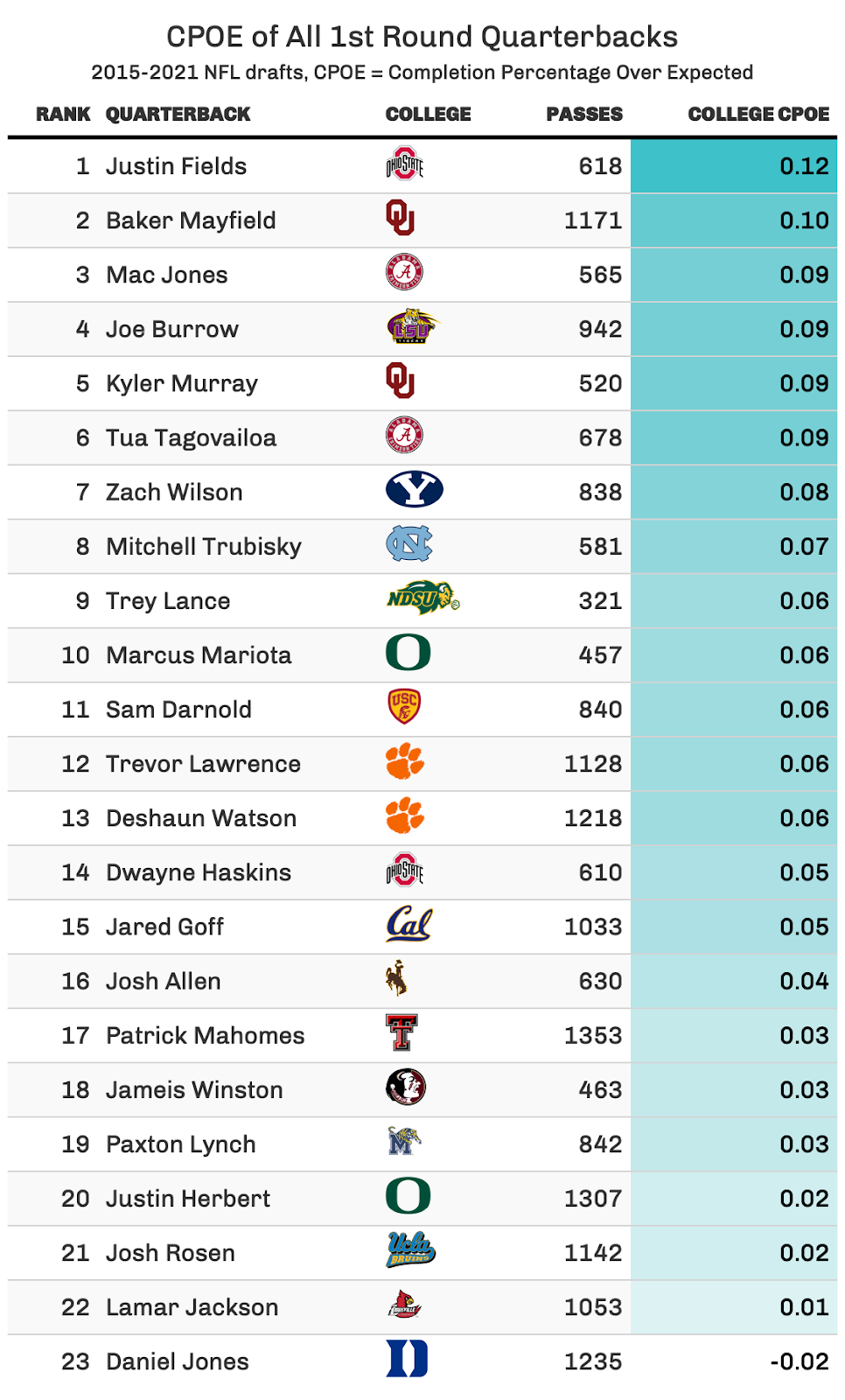
Let's compare Fields to the other five first-round quarterbacks taken in the 2021 NFL Draft, using Bayesian bootstrapping — which accounts for uncertainty in different sample sizes — to see each quarterback’s CPOE range of outcomes:
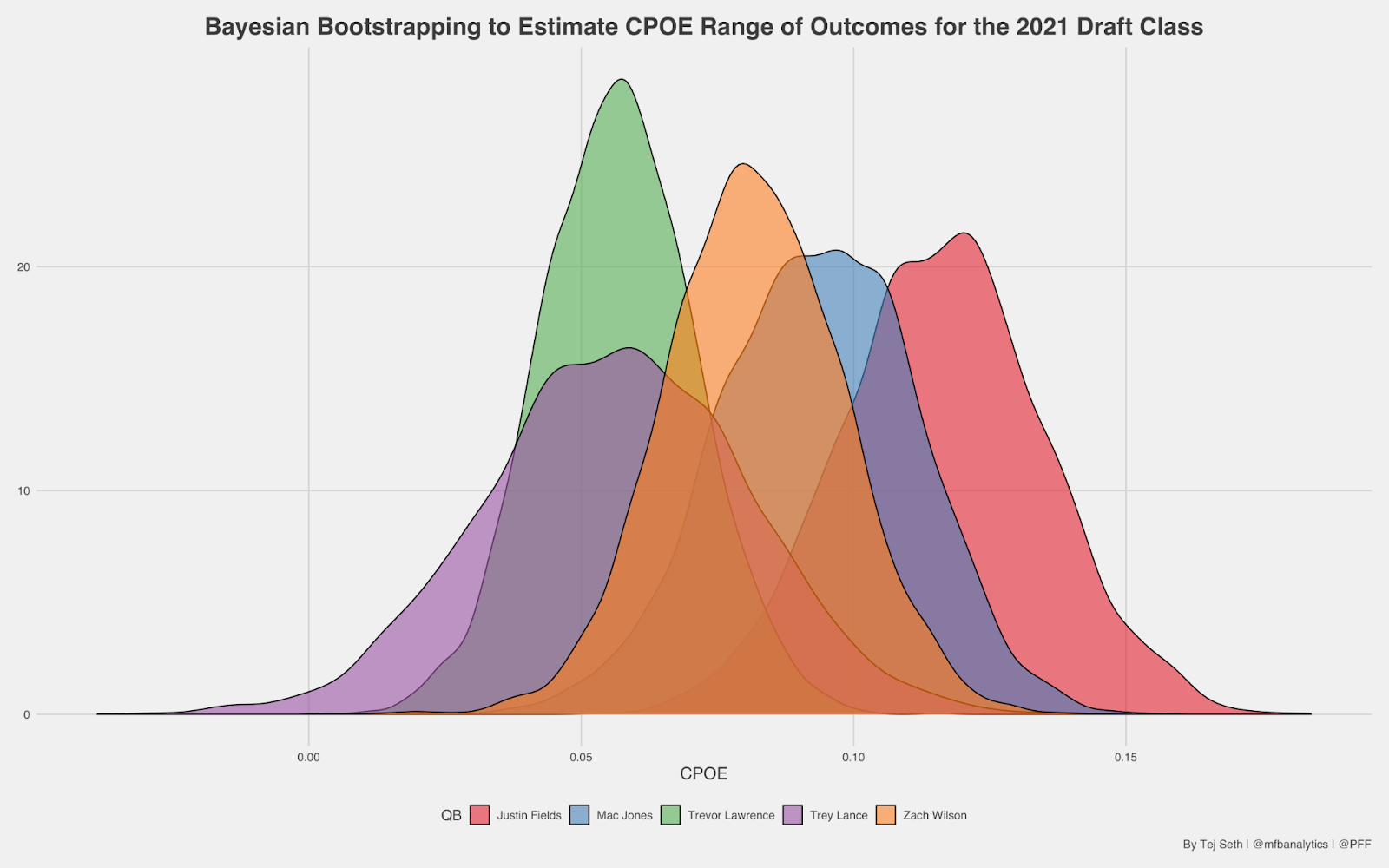
Fields was by far the most accurate quarterback of the five first-round signal-callers. (Note that this doesn’t mean Trevor Lawrence isn’t good just because his CPOE isn’t high. There are many other factors that make a good NFL quarterback, and CPOE is just one of them). In fact, Fields was the only quarterback to have a plus-10.0% or greater CPOE season in both 2019 and 2020 (minimum of 200 passes in both seasons):
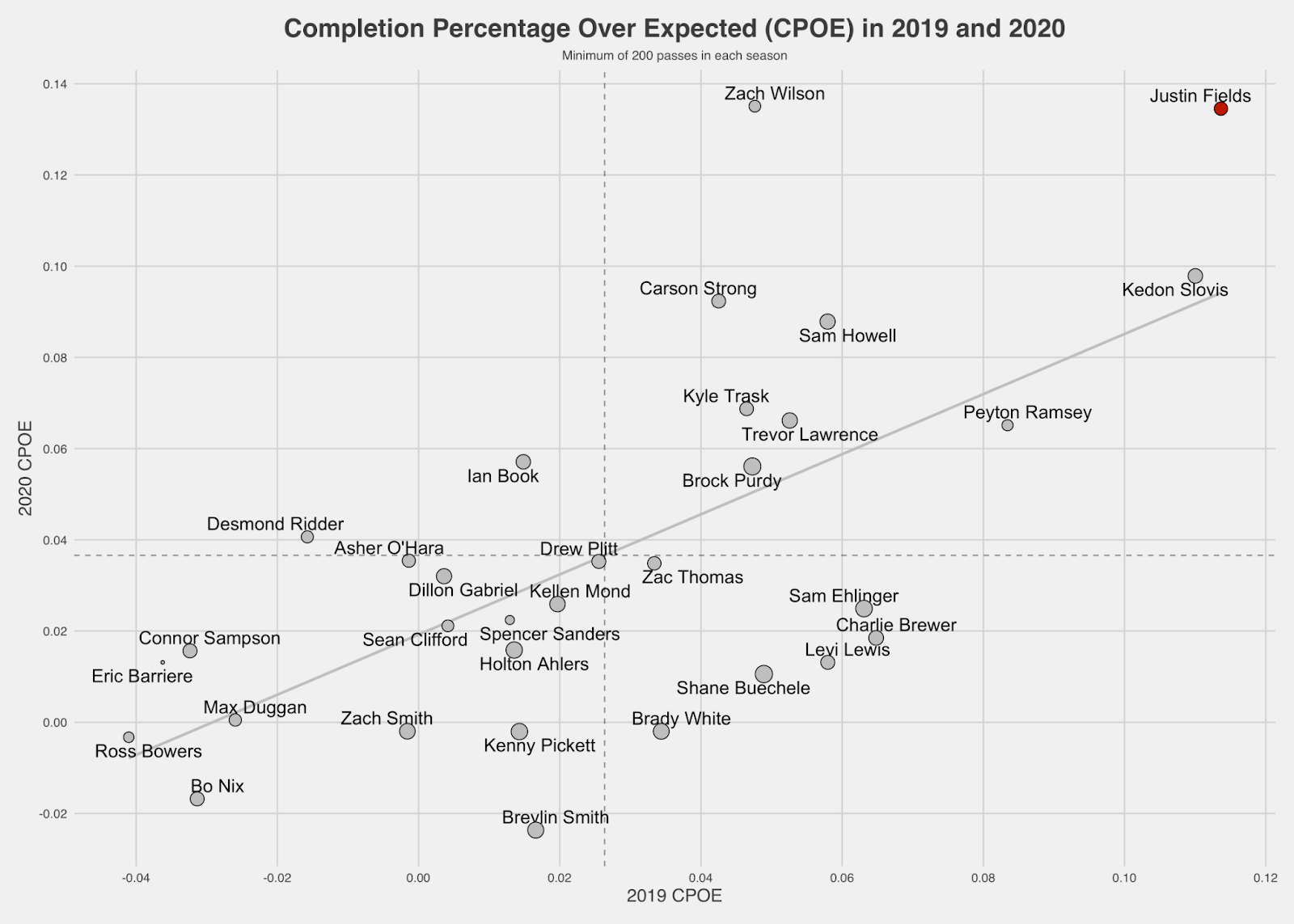
Skeptics claimed Fields had a “down year” in 2020, but looking at his advanced statistics quickly disproves that. He recorded a 91.5 overall PFF grade in 2019 before improving that mark to 93.5 in 2020. The story is the same when looking at EPA per play and CPOE:
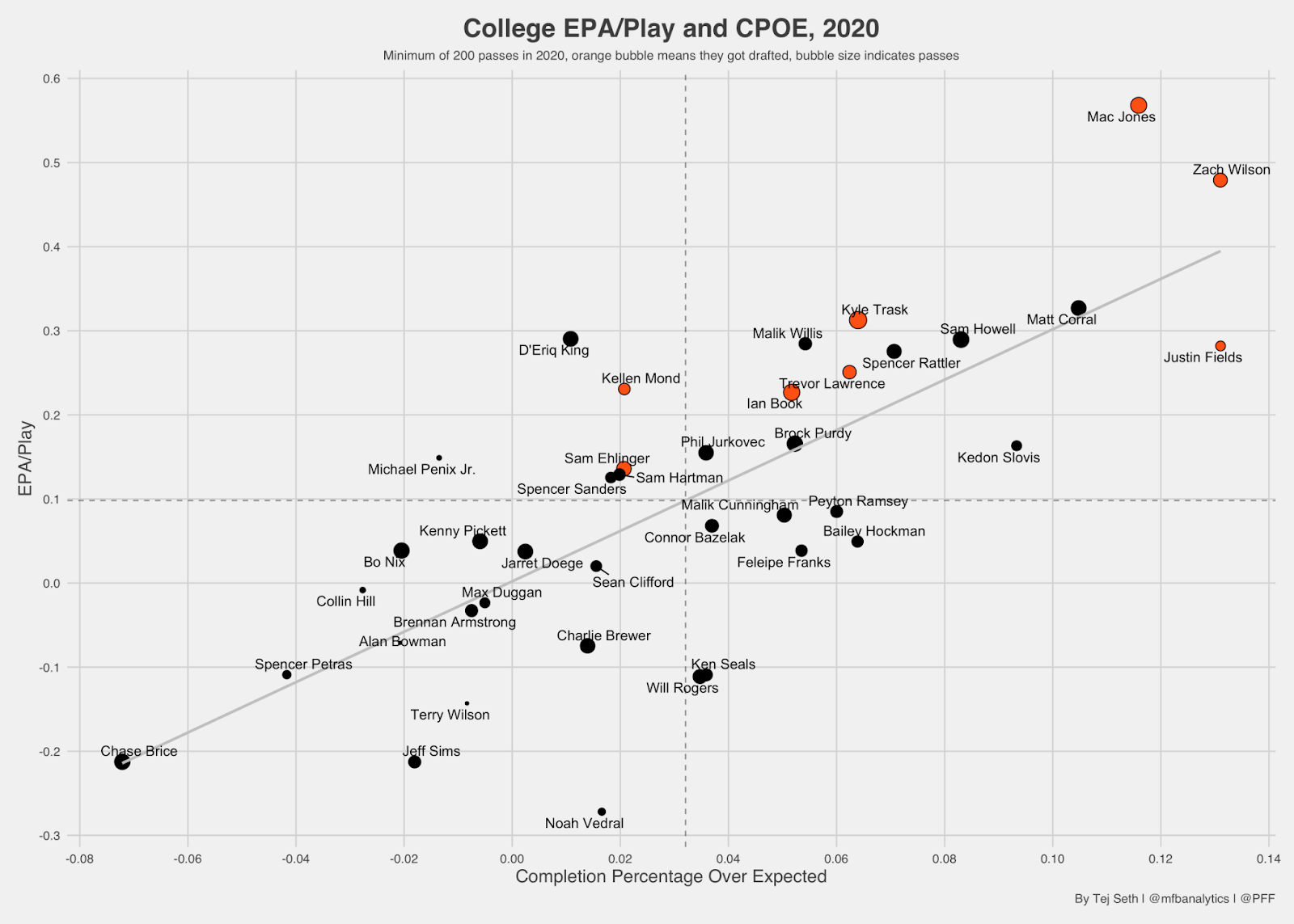
The Draft Network's Benjamin Solak noted that “Fields faced the toughest schedule of all CFB defenses by SP+’s metrics, including his four final games (Indiana, Northwestern, Clemson, Alabama) against top-15 defenses. No FBS quarterback drafted in the last 10 years has had a more difficult defensive schedule than Fields.”
So while Mac Jones and Zach Wilson were building up their EPA per play figures through superior offensive supporting casts and cupcake opponents, Fields went through a gauntlet of 2020 foes and still ended up in the same elite tier in the EPA per play and CPOE index. He put together one of the best college football seasons since PFF started charting college back in 2014.
In all, Fields is a rare quarterback prospect, and the Bears were gifted him at No. 11 overall. A prospect as accurate as he is has never come around in the PFF College era. Baker Mayfield, Kyler Murray and Joe Burrow were the only first-round quarterbacks close to Fields, and they have all shown signs of being long-term franchise quarterbacks.
As PFF's Anthony Treash wrote following the Bears' selection of Fields, “The Ohio State product possesses athleticism, arm talent, pinpoint accuracy, an ability to extend plays, fantastic judgment and unreal wheels, all traits that no other Chicago quarterback has ever come close to boasting. It's why Fields was able to produce at an elite level as the Buckeyes’ starter in 2019 and 2020, leading to the honor of being the most valuable player in college football over those two seasons, according to PFF’s wins above average (WAA) metric.”
Justin Fields is a special prospect and has a good chance to become the best quarterback in Chicago Bears franchise history.
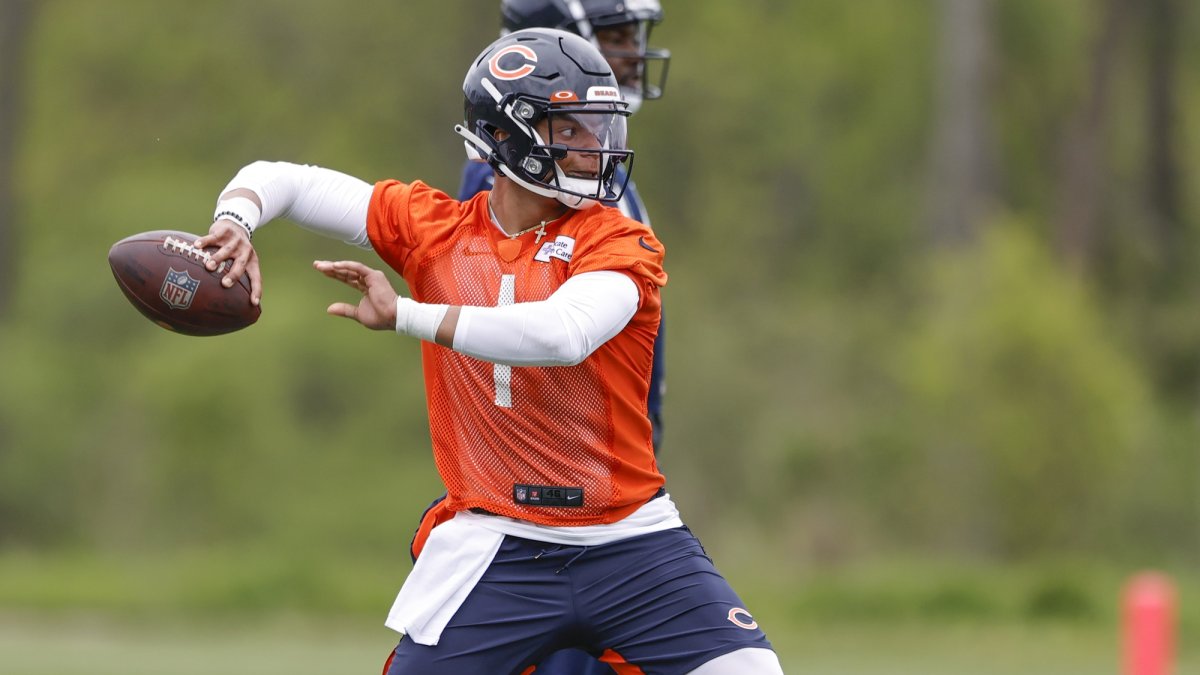


 © 2025 PFF - all rights reserved.
© 2025 PFF - all rights reserved.